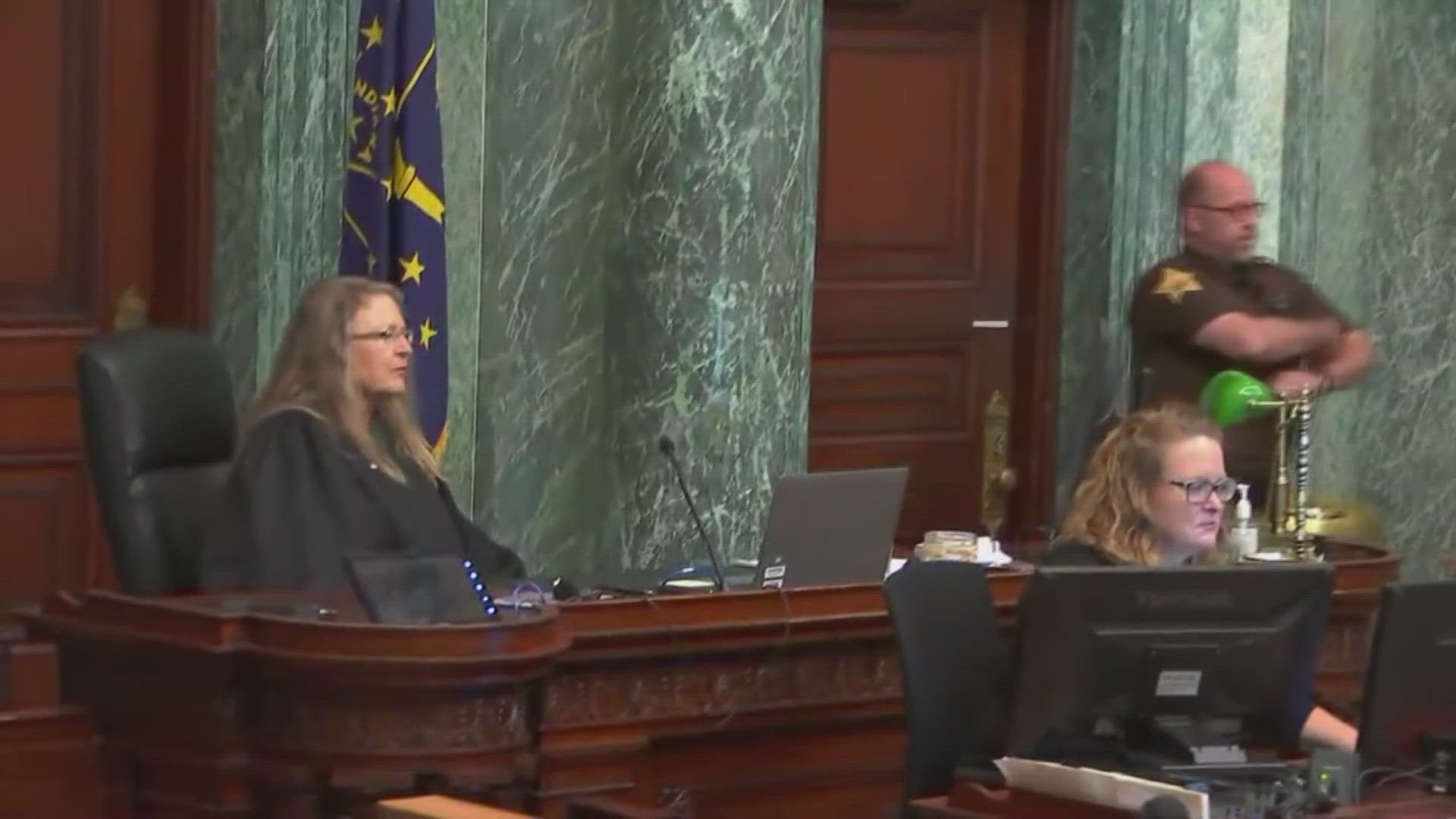DELPHI, Ind. — The man accused of killing two Delphi teenagers in 2017 is now getting public donations to help prepare his defense.
“We’re trying to crowdfund to make it a fair fight,” attorney David Hennessy told 13News Tuesday afternoon.
The longtime Indianapolis attorney has been helping Delphi defendant Richard Allen and providing legal counsel for Allen’s public defenders. Allen is charged with the murders of Abby Williams and Libby German near the Delphi Monon High Bridge, and his trial is scheduled to begin in mid-May.
Hennessy said he is increasingly concerned that Allen will not receive a fair trial, prompting him to launch an online fundraising campaign Monday afternoon “to fight for his freedom and for justice for both victims of this heinous crime.” In the first 24 hours, the fundraising campaign raised more than $10,000 of the $25,000 goal.
“All the money will go to experts. It won’t go to the attorneys, and it won’t go to Rick [Allen],” he said.
The crowdfunding effort comes after Allen’s attorneys filed court documents claiming that special judge Frances Gull has been denying their funding requests.
Because Allen’s defense attorneys are public defenders paid for by Carroll County taxpayers, court rules require all defense expenses – such as attorney fees, expert witness fees, investigation costs and travel costs – to first be approved by Gull before they are paid by the county.
According to Derrick Mason, executive director of the Indiana Public Defender Commission, Carroll County has a comprehensive plan that details the defense expenses that are eligible for payment. That plan states, “an attorney appointed to provide representation may request ex parte authorization from the judge hearing the case for expenditures for investigative services, expert witnesses, or other services necessary to provide adequate legal representation.”
The rules also say the judge is required to approve only those expenses that are determined to be necessary and reasonable.
According to the defense team, Gull has approved much less than requested.
For example, the defense team claims the judge approved $6,262 for them to consult with a firearms expert and a digital forensic expert about Delphi crime scene evidence, but they say the judge denied additional consultations with those experts as “unsupported” expenses.
“This Court’s denial of funding ensures an unfair, inequitable trial,” defense attorneys Brad Rozzi and Andrew Baldwin wrote in their “motion for parity in resources to reconsider the denial of anticipated defense costs or to exclude evidence” filed on March 17.
The Indiana Public Defender Council says judges are permitted to deny public defenders’ requests to fund expert witnesses, but those denials can create significant problems if they are not justified.
“If the defense counsel don’t have the tools that they need … they effectively cannot defend Mr. Allen fairly without having those resources available,” said IPDC assistant executive director Michael Moore. “For a judge to unilaterally decide those services are not needed, you don’t need these funds, is essentially creating a situation where there might be an unfair trial and a conviction that’s questionable.”
Allen’s attorneys have indicated the judge wants them to pay for expert witness expenses up front and that she will then review their reimbursement requests to determine if they will be granted.
“Brad [Rozzi] and Andy [Baldwin] have paid out of their own pockets, but it’s getting too much,” Hennessy told 13News. He said that is why they are now seeking private donations through a public crowdsourcing campaign.
“It’s not a leveling the playing field issue. It’s a due process issue,” said Kay Beehler, an attorney who has served as both a prosecutor and public defender in Marion County. “You can’t prepare a murder trial with one hand tied behind your back.”
Beehler said in more than 30 years of legal practice, she has never been denied funding for an expert she requested to help defend a client.
Marion County has its own public defender office with its own public defender budget, and that office makes its own decisions about what expenses to fund. In most other Indiana counties – including Carroll County – public defender expenses are handled much differently. Their requests for funding to prepare for a defendant’s trial must be reviewed and approved by the judge overseeing the case.
“Needing to seek funding from online fundraising really shows how messed up the system is in Indiana,” Moore said. “The biggest problem is, in Indiana there is no separation between the judiciary and public defenders. If the defendant has to go to the person who’s going to be the neutral arbiter in your case to say ‘I need money to go hire experts so I can properly defend myself,’ and that person who is going to decide your fate later on is also going to decide if the request you’re making is reasonable or not, the judge is serving in a different role than what the judge probably should be doing. It’s just a really unfair system.”
If public defenders believe they are being denied funding improperly, they can file an appeal to the Indiana Court of Appeals to review the denial. But that kind of appeal takes time.
“That would cause an 8-to-12-month delay, and Rick [Allen] can’t handle that, so we’re just trying to get some experts as quickly as we can,” Hennessy told 13News.
At 6 p.m., Tuesday, 188 anonymous donors had donated nearly $11,000 to hire those experts.

